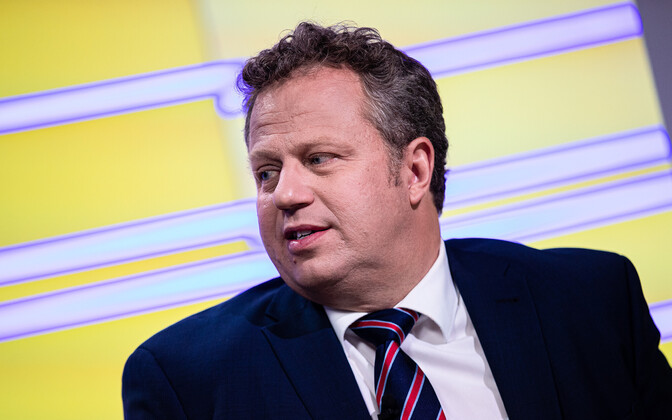
After comparing these two outcomes, Ulaanbaatar decided yielding to Moscow was the better option for it, he added.
Speaking to ERR, Mälksoo said: “In other words this has highligted a weak point in international institutions and organizations, where sanctions in these types of cases are primarily political.”
“The ICC has a political body, the Assembly of States Parties, Xwhere they assess whether a country has breached its obligations,” Mälksoo explained.
“If a state has not complied with non-compliance procedures, it will be officially noted. This could lead to political consequences for the violating state.
In principle, the Assembly of States Parties could bring the issue before the UN Security Council (UNSC), but since Russia is a permanent member of the UNSC, there’s little point in doing so, Mälksoo noted.
“This means the consequences for Mongolia will be political,” the expert went on.
At the same time, Mälksoo noted that Russia likely has greater leverage over Mongolia than other countries, allowing it to influence the country’s actions.
“Mongolia was certainly aware of the potential fallout from the ICC, yet it chose to act the way it did, which means there had to be certain power-politics factors at play. The tools Russia used to make the visit possible must have outweighed the political consequences Mongolia would face at the ICC Assembly of States Parties,” he added.
According to Mälksoo, the ICC represents shared human ideals that we, as a global community, do not want people to commit against one another, such as the commission of war crimes, crimes against humanity, or genocide.
“My belief is that Mongolia also fundamentally shares this view, but interpretation is another matter. Different countries have regional and national particularities which shape what they perceive to be a problem. In Mongolia’s case, we must consider its broader history: Russia has played a significant role in its past, even in its formation as a state,” Mälksoo continued.
Russia, Mälksoo continued, seeks to undermine the ICC’s prestige by creating a situation where international law is defined by power rather than principle.
“These events are part of a global struggle over what the lines of future international law may look like. Revisionist powers, especially those with a history of imperialism, are trying to ensure that international law applies to them in a restricted way; they want to create a situation where power defines law, and they can as it were laugh and just say, ‘What can you do about it?’
“At the same time, it depends on how you view the situation: Is the glass half full or half empty. I think the ICC’s arrest warrant has disrupted Putin’s foreign policy activities,” Mälksoo continued.
“Now we will get to see if this remains an isolated incident, namely with Mongolia, or if they can find another ICC member state which Putin can also visit without facing consequences. If such incidents recur, that won’t serve to bolster the ICC’s prestige,” Mälksoo concluded.
Mongolia is the first ICC member state to welcome Vladimir Putin, who stands accused by the ICC of committing war crimes in the invasion of Ukraine, and the organization has issued an arrest warrant due to the Russian leader’s alleged involvement in the deportation of Ukrainian children to Russia.
Mongolia has been urged by both the European Commission and Ukraine to fulfill its obligations.
Observers note that Mongolia, population 3.4 million, has sought to maintain independence between its two large neighbors, Russia and China, while at the same time fostering good relations with countries like the U:S., Germany, Japan, and South Korea.
This year alone, Mongolia has hosted the foreign ministers of the U.S., U.K., and Germany.
At the same time, Mongolia gets nearly all its gasoline and diesel fuel, as well as a significant portion of its electricity, from Russia.
Additionally, Russia holds a 50 percent stake in several key infrastructure and mining projects in Mongolia, dating back to Soviet-era agreements, and is a critical partner in the Mongolian railway system.
Mongolia’s membership of the ICC and its relations with Western countries thus represent a delicate balancing act.
Mälksoo stressed that international law has seen instances where irresponsible states have gone on to destroy well-intentioned institutions, citing the League of Nations, the forerunner to the UN during the interwar period, as an example.
“When some states are determined and have the necessary power and revisionist energy, they can indeed inflict damage on such organizations. However, I don’t think the situation is that serious right now, to the point where the ICC could be severely harmed.”
“But it depends on how energetically Russia pursues the next opportunity and whether this becomes a precedent. If heads of state under arrest warrants can continue to visit ICC member states without consequences, it will, of course, become a problem,” the professor summed up.
—
Follow ERR News on Facebook and Twitter and never miss an update!
This post was originally published on this site be sure to check out more of their content.








